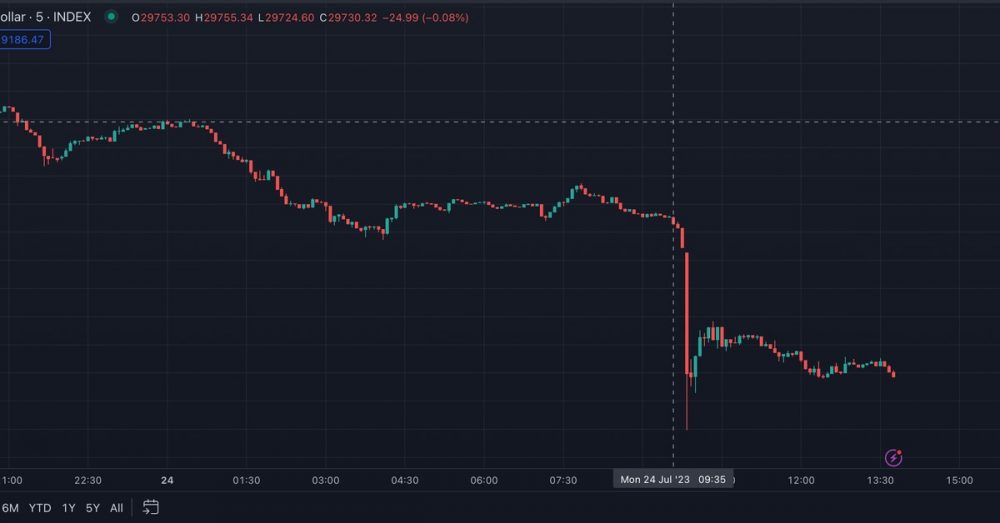Bitcoin (BTC) fell Monday after the Wall Street Journal said Binance CEO Changpeng “CZ” Zhao suggested in a private conversation that the crypto exchange’s affiliates had conducted wash trading several years ago and China’s policymakers warned of a tortuous economic recovery while falling short of announcing large-scale stimulus.
The top cryptocurrency by market value fell more than 2.5% to almost $29,000 between 9:30 UTC and10:00 UTC, CoinDesk data show. That’s shortly after the WSJ published a report saying Zhao said in an internal message that the exchange’s affiliates may have been responsible for trading $70,000 worth of bitcoin on Binance.US’ debut in 2019.
“That was ourself, I think,” Zhao said in an internal message, according to the Journal. Wash trading refers the process of artificially inflating transaction volumes by trading with yourself or an affiliated entity.
Early last month, the U.S. Securities and Exchange Commission (SEC) filed a wide-ranging lawsuit against Binance for violating securities law and alleging that it used Sigma Chain, a company headed by CZ, to manipulate the volume. The U.S. banned wash trading in traditional markets in 1936.
A spokeswoman for Binance, which was founded by Zhao, told the newspaper that neither the company nor Zhao has engaged in or tolerated wash trading. CoinDesk has contacted Binance for comment.
The WSJ’s report also said Binance’s representative dismissed the SEC’s charge as unfounded. Binance is the world’s largest cryptocurrency exchange by trading volume. Thus, regulatory uncertainty surrounding Binance tends to weigh on crypto prices.
Around the same time, China’s ruling Communist Party’s 24-member Politburo — its top decision-making body, led by President Xi Jinping – said the country’s economy is facing new difficulties and the economic recovery will be challenging. Early this year, analysts widely cited China’s reopening of its economy as a major bullish tailwind for risk assets, including cryptocurrencies.
Importantly, Politburo’s readout published by the official Xinhua News Agency did not include large-scale fiscal and monetary stimulus announcements.
China faces several issues ranging from weak consumer spending after an early boost following the reversal of covid lockdown measures, deepening deflation in factory-gate prices, and housing and real estate problems. As such, markets have been expecting a strong monetary or fiscal response from Beijing.
Bitcoin, often considered a pure play on fiat liquidity and the riskiest of the risk assets, likely fell on the back of China’s growth concerns and the absence of major stimulus hints.



